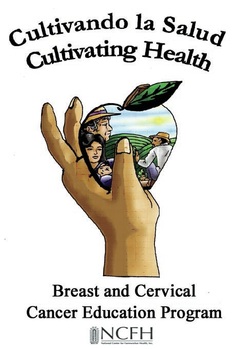|
Although there has been substantial progress in cancer treatment, screening, diagnosis, and prevention over the past several decades, addressing cancer health disparities—such as higher cancer death rates, less frequent use of proven screening tests, and higher rates of advanced cancer diagnoses—in certain populations is an area in which progress has not kept pace. These disparities are frequently seen in people from low-socioeconomic groups, certain racial/ethnic populations, and those who live in geographically isolated areas. – National Cancer Institute  The U.S. Latina population has lower-rates of breast cancer than non-Hispanic women. However, they have a 20% greater chance of dying than other women after receiving a positive diagnosis. Many attribute this discrepancy to the social determinants of health that influence patient survival – including a lack of access to quality education and healthcare, which is exacerbated by patients’ socioeconomic statuses. The unique seasonal and migratory lifestyles of female agricultural workers further compound and complicate these issues – as do the effects of existing misinformation regarding screenings and cultural beliefs amongst this population. The necessity of consistent appointments and follow-ups for effective care proves problematic for those on the move and those working under severe occupational time constraints. Women over the age of 50 are urged to get annual mammograms in addition to performing frequent self-examinations. However, a positive exam only constitutes an initial step in the breast cancer diagnosis process. Patients must return and provide a tissue sample before the disease is confirmed. Federally Qualified Health Centers (FQHCs) served more than 2 million women over the age of 50 and 440,000 women utilized services at Migrant Health Centers in 2014. FQHCs also performed more than 470,000 mammograms and found almost 110,000 breast abnormalities last year. The National Center for Farmworker Health recognizes the need for a special focus on breast cancer outreach to the U.S. female agricultural worker. Through its Cultivando la Salud program, NCFH offers health centers and other Hispanic-serving organizations the opportunity to receive train-the-trainer instruction intended to provide program planners with the knowledge, step-by-step process, and the tools to successfully plan and develop a comprehensive breast and cervical cancer education program for the agricultural population as well as other Hispanic communities. The training includes basic program planning information from designing the program goals and objectives to developing a budget to recruitment and training of lay health workers. The program also includes an evaluative component and specialized focus on the teaching tools lay health workers will be using in the community. At the end of the training, training participants will be provided with a complete training curriculum, a program manual to guide the implementation of the program, and the CLS teaching tools for lay health workers to use in the community. By Lindsey Bachman
Photo: Steve Debenport, iStock Comments are closed.
|
The National Center for Farmworker HealthImproving health care access for one of America's most vulnerable populations Archives
March 2024
Categories
All
|


 RSS Feed
RSS Feed